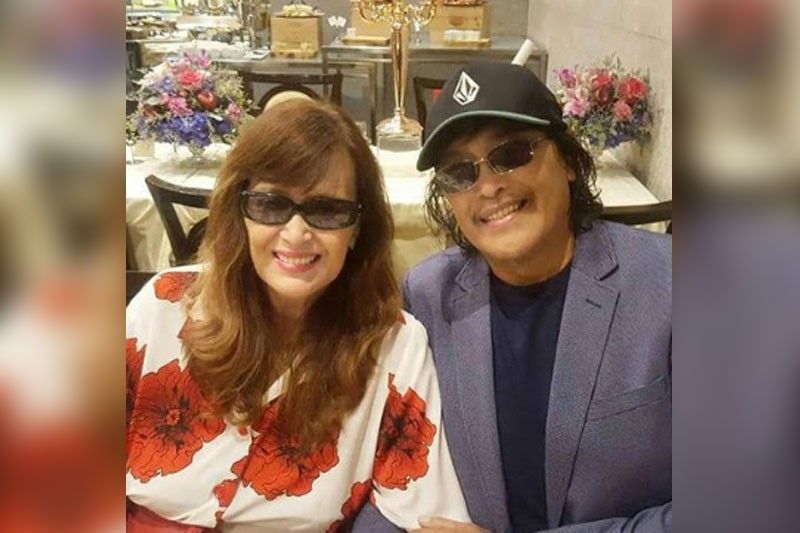Carlo J. Caparas was a ‘dedicated filmmaker, loving husband’

CEBU, Philippines — Cebuano media personality Sam Costanilla hadn’t spoken to Carlo J. Caparas in almost four years when he heard the news Sunday, May 26, that his dear friend passed away at the age of 80 the day before.
“It came as a shock. It hasn’t sunk in yet that he’s already gone,” Costanilla told The FREEMAN in a phone interview.
Their friendship started with a phone call from Caparas’ secretary who told him that the “Panday” creator would like to meet him. Caparas and his actress/film producer-wife Donna Villa, who hails from Lapu-Lapu City, had read Costanilla’s column imploring Filipino filmmakers to hire more Cebuano talents.
The erstwhile Golden Couple of the Philippine film industry was up for the challenge. They hired him as a talent coordinator when Caparas shot his IBC TV series “Kroko: Ang Alamat sa Zoo” in Mactan, Cebu.
Their collaboration continued in the controversial 2018 true crime film “Jacqueline Comes Home: The Chiong Story” where he did double duty as talent coordinator and bit player with his role as reporter.
Costanilla accompanied Caparas in meeting the parents of the Chiong sisters, Dionisio and Thelma.
“I don’t know how he convinced [Thelma] Chiong because there were other producers who were interested in doing a movie about the sisters, but she and her husband declined,” he recalled. “It was Direk Carlo that finally got their nod.”
“Jacqueline Comes Home” was the comeback of Caparas to the true crime genre. Known as the country’s King of Massacre Movies, he helmed the ‘90s titles “The Vizconde Massacre”, “The Cecilia Masagca Story: Antipolo Massacre”, among many others.
His daughter Peach directed “Jacqueline Comes Home”, based on the rape-slay case of the Chiong sisters. The father-daughter duo shared writing credits in the film which starred Donnalyn Bartolome and Meg Imperial.
Costanilla recalled how Caparas preferred writing his scripts with pen and paper even with the ease of technology.
“He didn’t use a typewriter or computer. According to Carlo, he liked the idea of writing the traditional way because he can put his emotions into the script,” said Costanilla.
Even with his painstaking scriptwriting method, Caparas allowed actors to adlib because, according to him, “the script is just a guide.”
And yet despite his proclivity for the gruesome and the grisly, Costanilla described the comic strip creator, producer and director as gentle and soft-spoken.
“He would not shout at talents. He would just tell them calmly and smilingly that this is how they should do their scene,” Costanilla said. “He is a passionate and dedicated filmmaker, but behind the scenes, he was very kind and generous.”
‘Real artist, genuine person’
Marlon Douglas Hofer, another Cebuano creative, would agree with the description even if he had a “bittersweet” experience with Caparas as a talent in “Jacqueline Comes Home.”
Speaking on behalf of the Cebu talents, Hofer called out the filmmakers for the “mistreatment” of its talents during an early morning shoot in Carcar City that didn’t have proper facilities and adequate food and water on set. The shoot didn’t push through, forcing the talents to go home without their day’s earnings.
Where some directors might have retaliated or ignored their woes, Caparas met Hofer over dinner to iron things out. An admirer of his body of work, Hofer praised Caparas’ humility and compassion. “Carlo is a real artist, and a genuine person,” said Hofer.
Caparas also opened up to Hofer on how he dealt with the death of his wife in 2017 after a battle with cancer. “His world was shattered. He used to go to the cemetery every day because he wanted to see his wife. He wouldn’t speak or eat,” recalled Hofer.
“There was a point when his daughter intervened and confronted him if he could still live for his loved ones or follow his wife. That made him realize that there are still people who love him so much. That’s where I saw his vulnerable side.”
Hofer only learned of Caparas’ passing when The FREEMAN contacted him for an interview on Sunday, May 26. Caparas had told him, “Marlon, I like working with you and all of the Cebuanos I worked with. I promise to make another film in Cebu. Just wait and pray.”
He is dismayed that this project will no longer come to light.
Tribute to his wife
Caparas had three reasons why he wanted to help the Cebu film community: to highlight the beauty of the province, to give its talents the national spotlight, and to pay tribute to his Cebuana wife (real name: Marian Patalinjug).
“It’s just unfortunate that he passed, so such a dream could no longer be realized,” Costanilla lamented.
In one of their last interactions, Costanilla visited the couple’s Lapu-Lapu residence where half of Donna’s ashes are kept in an urn by his bedside.
“Carlo was a loving husband and father to his children. He loved Donna very much,” said Costanilla, adding that Caparas had expressed plans of shooting another film in Cebu after the release of “Jacqueline Comes Home” that will pay homage to his wife and her roots.
Costanilla’s hope now is that “his daughter Peach or his son CJ will carry the torch in honor of their Cebuana mother. I hope they will continue the legacy their parents left.” — (FREEMAN)
- Latest























